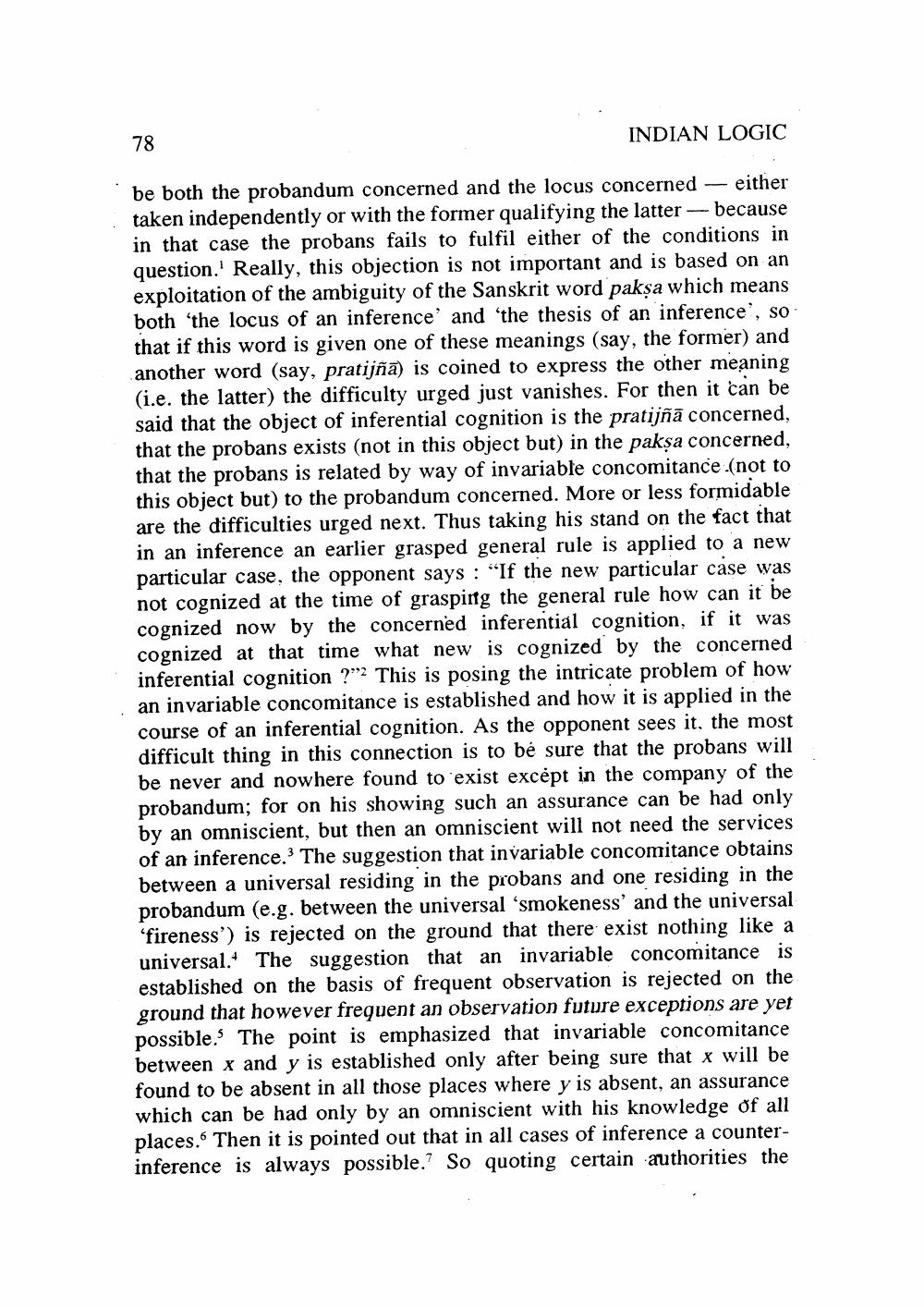________________
78
INDIAN LOGIC
be both the probandum concerned and the locus concerned - either taken independently or with the former qualifying the latter - because in that case the probans fails to fulfil either of the conditions in question. Really, this objection is not important and is based on an exploitation of the ambiguity of the Sanskrit word paksa which means both 'the locus of an inference' and 'the thesis of an inference', so that if this word is given one of these meanings (say, the former) and another word (say, pratijñā) is coined to express the other meaning (i.e. the latter) the difficulty urged just vanishes. For then it can be said that the object of inferential cognition is the pratijñā concerned, that the probans exists (not in this object but) in the pakșa concerned, that the probans is related by way of invariable concomitance (not to this object but) to the probandum concerned. More or less formidable are the difficulties urged next. Thus taking his stand on the fact that in an inference an earlier grasped general rule is applied to a new particular case, the opponent says : “If the new particular case was not cognized at the time of grasping the general rule how can it be cognized now by the concerned inferential cognition, if it was cognized at that time what new is cognized by the concerned inferential cognition ?""? This is posing the intricate problem of how an invariable concomitance is established and how it is applied in the course of an inferential cognition. As the opponent sees it, the most difficult thing in this connection is to be sure that the probans will be never and nowhere found to exist except in the company of the probandum; for on his showing such an assurance can be had only by an omniscient, but then an omniscient will not need the services of an inference. The suggestion that invariable concomitance obtains between a universal residing in the probans and one residing in the probandum (e.g. between the universal 'smokeness' and the universal 'fireness') is rejected on the ground that there exist nothing like a universal.' The suggestion that an invariable concomitance is established on the basis of frequent observation is rejected on the ground that however frequent an observation future exceptions are yet possible. The point is emphasized that invariable concomitance between x and y is established only after being sure that x will be found to be absent in all those places where y is absent, an assurance which can be had only by an omniscient with his knowledge of all places. Then it is pointed out that in all cases of inference a counterinference is always possible.? So quoting certain authorities the




